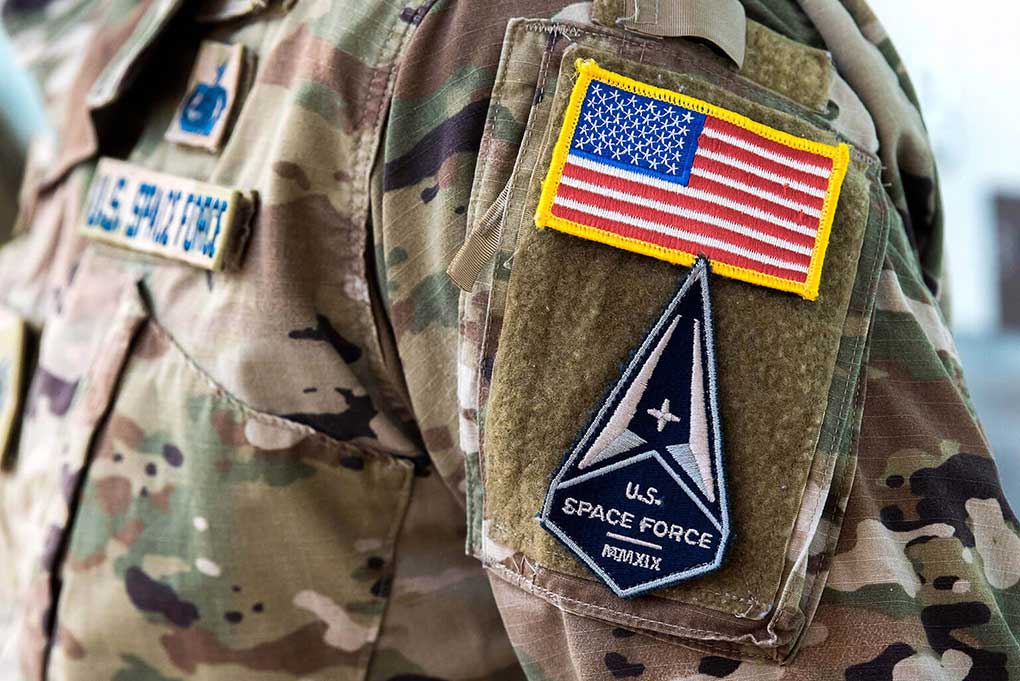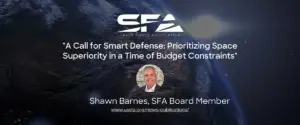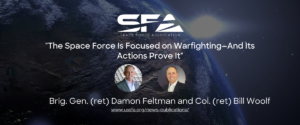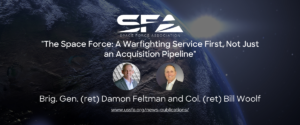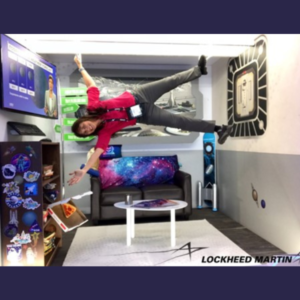Lt General David “Rock” Miller, Jr. became the second ever commander of United States Space Force Space Operations Command (SpOC) on Jan 9, 2024. In an exclusive Space Warfighter Talk interview, SFA had the privilege of sitting down with Lt Gen Miller, the newly appointed Space Operations Command (SpOC) commander, a pivotal element of the United States Space Force. Lt Gen Miller offered insightful perspectives on current threats, strategic priorities, and the future trajectory of SpOC.
Addressing Global Threats and Prioritizing Security
Lt General Miller began by detailing the threats and pacing challenge China and Russia provide. He expressed concern over China’s development of fractional orbital bombardment capabilities and Russia’s test in November 2021, which drew international criticism. Highlighting the importance of global stability, Lt Gen Miller emphasized SpOC’s commitment to counteracting these destabilizing actions.
To counter emerging threats, SpOC will maintain and build upon a combat-ready space power with focus on capability development, service provision, and advocacy.
Three Pillars of Space Operations Command
Lt Gen Miller outlined his strategic vision for SpOC, emphasizing three core roles:
1. Combat-Ready Space Power: Focusing on enhancing capabilities and infrastructure and developing leadership to address evolving threats.
2. Service Force Provider: Coordinating and sourcing combat power for military services, intelligence agencies, and allies.
3. Combat Forces Proponent: Synchronizing mission deltas and advocating for combat mission needs.
The overarching goal is creating combat-ready space power for America, ensuring preparedness for current and future challenges.
Innovative Integrated Mission Deltas
One avenue discussed to achieve the goal of combat-ready spacepower was the use of prototype Integrated Mission Deltas (IMDs). SpOC innovates with IMDs to unify command and enhance combat readiness. This type of unit will bring together the acquisition and operations communities to improve force development. This endeavor has potential to ensure a unity of command for combat forces’ readiness. The team approach will address challenges in resourcing sustainment and decision-making related to combat readiness.
Training and Readiness: A Collaborative Approach
Lt General Miller is dedicated to training his Guardians. He described the different types of training a Guardian receives from Space Training and Readiness Command. He went on to emphasize a commander’s responsibility to provide advanced training for the unit. This advanced training should consider the threat landscape, modernization efforts, and specific combatant command requirements. He shared that the Space Force should train to a common standard with a goal to work in collaboration on a full range of missions.
The establishment of Space Forces space, a command dedicated to enduring missions like missile warning and space domain awareness, is an example. This separation allows for focused execution and continuous improvement in combat readiness.
Challenges and Expectations in Establishing the Space Force and Cultivating an Inclusive Culture
The General stated that SpOC gets forces prepared to be able to force-present to any combatant command. Organizing, training, equipping and communicating clear expectations are the core challenges that come with standing up the Space Force. The development of a warrior culture requires additional effort. Lt General Miller is satisfied with the progress so far and highlighted revamping initial skills training in 2024 to reinforce the warrior culture being built.
Lt Gen Miller also expressed optimism about the Space Force’s inclusivity, valuing the diverse experiences of personnel from different services. He stressed the importance of adopting best practices to enhance capabilities.
Transparent Communication and Industry Collaboration
In regard to commercial industry partnership with the Space Force, Lt General Miller spoke about an effort by the Space Force to be transparent with requirements. His aim is to directly communicate the focus areas to industry partners. The focus areas are live, virtual, constructive environments for combat-ready space operators. Additionally, he anticipates integrating machine learning, automation and artificial intelligence in the tactical units to optimize efficiency and allow Guardians to concentrate on threat analysis and tactics development. He stated that the Space Force needs cutting-edge technology that will provide solutions that address immediate needs versus lengthy acquisition schedules.
Lt Gen Miller’s vision for Space Operations Command reflects a strategic, integrated approach to ensuring space security and readiness. His emphasis on innovation, training, and collaboration sets a clear path for the Space Force’s continued development and efficacy in an ever-evolving domain.
Become a member and get exclusive updates on our Space Warfighter Talks and more! Join now!
